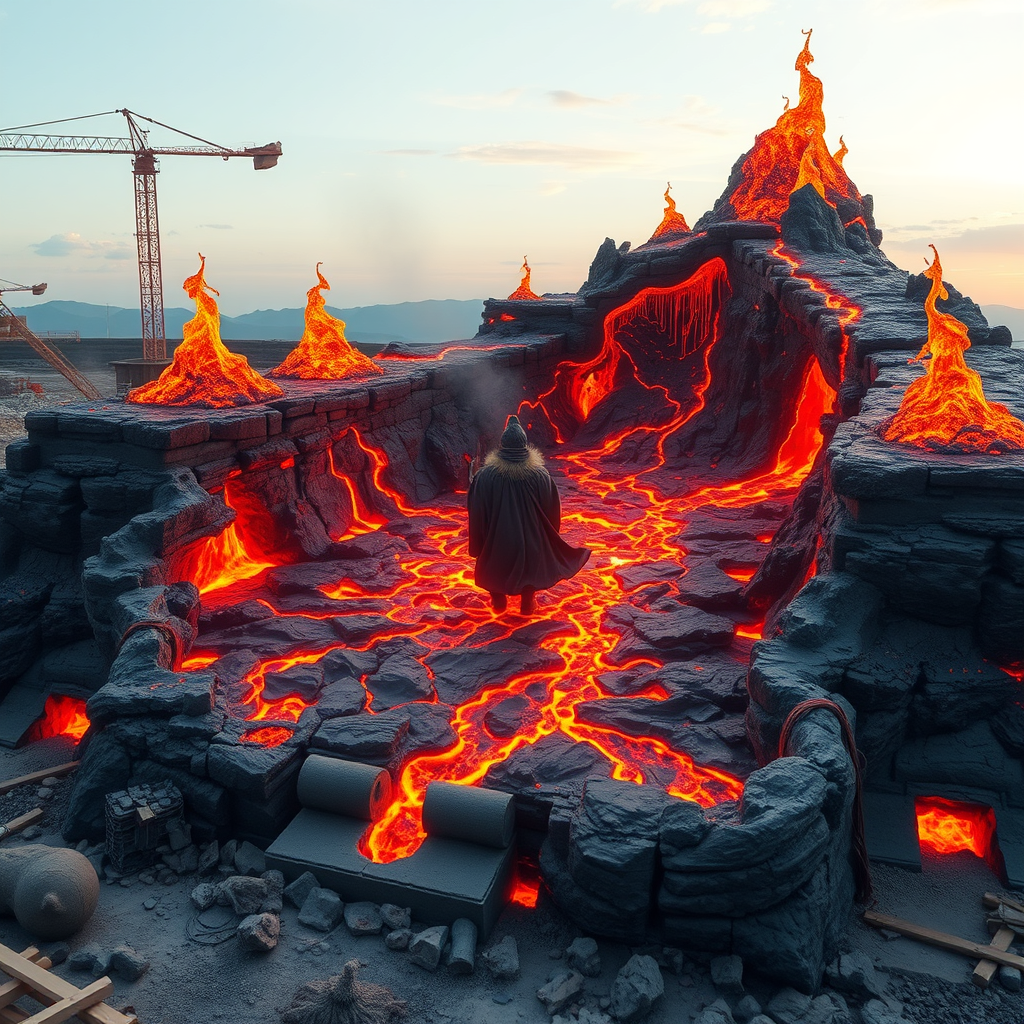a pity it was NOT rent-free
snowflake
A couple of quotes from Kropotkin that might help your researches:
-
"Volumes and volumes have been written about these unions which, under the name of guilds, brotherhoods, friendships and druzhestva, minne, artels in Russia, esnaifs in Servia and Turkey, amkari in Georgia"
-
"Only now, when hundreds of guild statutes have been published and studied, and their relationship to the Roman collegiae, and the earlier unions in Greece and in India,[FOOTNOTE: Very interesting facts relative to the universality of guilds will be found in “Two Thousand Years of Guild Life,” by Rev. J. M. Lambert, Hull, 1891. On the Georgian amkari, see S. Eghiazarov, Gorodskiye Tsekhi ("Organization of Transcaucasian Amkari"), in Memoirs of the Caucasian Geographical Society, xiv. 2, 1891.] is known, can we maintain with full confidence that these brotherhoods were but a further development of the same principles which we saw at work in the gens and the village community."
Ok so it's starting to come together:
1st to 6th centuries – the Barbarian-Roman dialectic
The Gallic Wars were a stalemate (rather than a comprehensive Roman win).
Therefore the barbarian mode of production Kropotkin described remained influential in France and Britain. A paper (DOI: 10.1007/s10814-015-9088-x) talks about how commonage is a pre-Roman influence on Roman and post-Roman Britain. The Visigothic Code (Spain, 642AD) combined Roman and Germanic law, showing that there was a dialectic between those two in that era. Germanic Law means popular assemblies and tribes (i.e. mutual aid groups) and compensatory justice (no cops, no jails). So that Roman-barbarian dialectic existed in Terra, and the Roman aspect led to feudalism. If we tip the Roman-barbarian dialectic to the barbarians, that has knock-on effects.
Because the Roman order doesn't dominate France and Britain, if Emperor Constantine converts to Christianity, it doesn't spread the religion. Gallic France, Anglo-Saxon Britain, etc remain pagan. Polytheistic paganism is a more compatible superstructure for a decentralised mode of production; monotheism is more compatible with worship-the-lord and tribute-the-clergy feudal production.
(I haven't talked about religion much, but the world is pagan rather than Abrahamic in case that wasn't obvious)
Class conflict in 'The Middle Ages'
This is when guilds start to emerge (in both Terran history and the alternate history). Let's look at some classes that exist and their class interests
Good guys for the purposes of our story here:
- Barbarians. People with a vested interest in the barbarian mode-of-production. Huns, "The Teutons, the Celts, the Scandinavians, the Slavonians, and others", the Russian mir. Their class-interest is to avoid enclosure, avoid anyone coming in imposing tax/tribute/surplus-value-extraction from them. The Chechens, the Turkic tribal confederacy, etc.
- Peasants. Their material interest is to keep production as independent as possible. An example is Terran history of where they succeeded is Friesland. Prevent enclosure.
- Craft guilds. Similar class interests to peasants really (the hammer to their sickle): keep production as independent as possible.
Bad guys –
- Aristocracy. They try to extract surplus value from the peasants and craftsmen. Where the post-Roman and feudal order exists, they exist. Where it does not they do not.
- Clergy. Pretty much the same as the aristocracy. They are much weaker in this world, not worth mentioning. (The Church is antagonistic to clans because they want people depending on the Church: "It has been argued that kinship ties were relatively weak in western Europe, perhaps as the result of deliberate policies by the medieval Catholic Church to weaken them")
- Merchant guilds. 'Bad guys' here because they are what became the bourgeoisie. Must smash. Their class-interest is doing things like enclosure
It makes perfect sense why the proto-bourgeois merchants, aristocracy, clergy have antagonistic interests to the barbarians and peasants.
Fitting the class guilds on to the side of the clans and against the merchant guilds is harder, but maybe I can make it work.
First problem with making the class alliance is that guilds don't historically side with clans: "guilds did not develop in the British Isles in the early medieval Celtic lands where kinship ties dominated.... Tine De Moor argues that weakened family ties were a vital precondition for the spectacular growth of guilds". Second reason is that craftsmen could be aligned with, not antagonistic with the proto-bourgeoisie, who could give them funding and markets. This is ameliorated if you remove the profit-motive: if the economy is moneyless, based on mutual aid obligations, the craftsman isn't interested in a bigger market. (The barbarian "blacksmith, who, like the blacksmith of the Indian communities, being a member of the community, is never paid for his work within the community" isn't interested in 'making more sales'.)
A series of wars between these two in the Middle Ages ends in the destruction of the merchant and feudal classes. One cool idea is it becomes a war-on-two-fronts for the emerging feudal and bourgeois system; they have Celts to the West (because Julius Cæsar failed to wipe them out), and to the East they have Turks, Huns, Chechens, the Nomadic Empire. A Celt-Khan vice-grip crushes kings.
The half-feudal-half-free people within what was the Holy Roman Empire – groups like the Old Swiss Confederacy, the Frisian Freedom, and peasant republics like the Republic of the Escartons – saw the writing on the wall and sided with the barbarian confederacy. That is in their interest. Basically all the mediæval people Kropotkin liked allied against all the mediæval people Kropotkin did not like.
Europe's contact with America and Africa in the Age of Sail
Contact is made between the confederated tribes of Europe and the confederated tribes of America. They both have a mode-of-production where they produce locally, rather than extract/exploit. They have no material reason to come into conflict. (In Terra, where they were all about extraction, they did.) You have democratic Europeans (democracies like the folkmoot and þing) meeting democracies like the Haudenosaunee. They start bartering and intermarrying a little. The dominant mode-of-production in Europe isn't exploitative, so instead of committing genocide Europeans start wearing moccasins because moccasins are comfy as fuck let's face it.
Similarly, plenty of cool, chill societies in Africa like the Igbo that are based on mutual aid. "It is therefore obvious from the way societies like the Tiv, the central Igbo, and the Dagaaba were organized that they were well aware of the political structure of the centralized systems, but tried to eliminate them as much as possible.... such ethnic societies as the Tiv and Igbo of Nigeria, the Nuer of Sudan, the Somali, and the Bedouin Arabs throughout North Africa..... In general there were no officeholders; only representatives of groups.". So when Europe and Africa start making more links (in the 1400s), it is European tribal confederacies without an extractive economy, and without a religious imperative to convert/subjugate heathens.
Europe's contact with India and China
Now the above doesn't explain why East Asia would follow the same pattern, but a similar thing happened in Terran history: the treaty of Westphalia established nation-states and later the entire globe was nation-states. Similar here but with tribal confederacies.
The Great Divergence
The guilds want to train apprentices in every newly-contacted country to spread their influence. This serves as a technology-transfer mechanism. Industry is not nationalistic: there is an inter-national transatlantic class of engineers: the guild. It is into that world that the steam engine comes. Technology doesn't give Europe a competitive advantage, because technology gets spread.
-
George Unwin, The Gilds and Companies of London – https://archive.org/details/cu31924030086692 – on page 2 and 3 he mentions there were guilds in China and India but he doesn't go into detail
-
There's a book called Crafts and Craftsmen of the Middle East: Fashioning the Individual in the Muslim Mediterranean that you can find on Annas-archive
-
There's a book called The Guilds of Ottoman Jerusalem that you can find on Annas-archive
Thanks for reading! Hope you enjoyed the post!
What should I ask my contact in the multiverse about next? Preferably don't focus on the negative.
Next post be about –
- The three moneyless economic mechanisms: mutual aid, contract, and n-sided computerised barter.
- Maritime. The world has many traditional seafaring cultures.
- Some particular region? You choose. (e.g Māori New Zealand, the Arctic cultures, North America
- Solarpunk householding: heating fuel, storage cellars, composting toilets, community gardens
- The formal political structures. The equivalent of the U.N.
- Legal systems and dispute-resolution. Law without lawyers, cops, or prisons. What happens to murderers and thieves? I've researched the history/anthropology of this a lot.
this is clearly half-baked and inefficient
No it's great! Lava hardens into rock, so if you shape/form/mould it when it is lava, then it solidifies into the shape you want.
There are lots of ways of making things that rely on the thermoplastic effect: you shape it when it's liquid, then it hardens and you're done.
If the wizard could bend/conjure lava into any shape, he would be a useful man to have on your construction crew.





Right-o. I should have got that.
Your links are broken, at least for me
horny content inside
Most worldbuilding has some erotic parts, but I did one where the erotic was front-and-center. A silly world that runs on porn logic and every fantasy comes true. Fantasies like: cheerleaders, sexy cops abuse their power, nurses take really good care of you, you rub a lamp and a genie comes, you get kidnapped by aliens, enthralled by a vampire.....
Because it's a whimsical leisure world, everything should be on easy-mode. Agriculture should be free of pests and produces massive yields. There's little disease. It's a Utopia of sorts. It's hard to justify that.
Then I realised if I justify the 2nd-last fantasy listed in the first paragraph, I can justify everything else. What sort of world is it where you might get kidnapped by sexy aliens? If alien abduction happens, there must certainly be far more advanced aliens watching over the planet, using it as a playground. It's an extraterrestrial creationism situation: the aliens built the world for their amusement.
It was satisfying to justify one specific plotline that tends to happen (alien abduction), and in the same stroke justify all sorts of things: why is the world filled with beauty and exoticism, why is work on easymode, why is there no disease.
Extraterrestrial creationism is an idea with some canon. It's actually a plausible prediction that if technology develops enough in 100,000 years our horny descendants will create an erotic planet populated by beautiful porn stars who think they evolved there naturally and sometimes get abducted. Wouldn't you if you had the technology? With one stroke, it goes from 'ridiculous fantasy' to 'plausible'.
Almost anything else I need to justify now is just: "the makers made it that way". Santa Claus can exist if his magic sleigh is alien tech: he's an alien who flies around spanking naughty girls. I can justify vampires existing (the makers engineered some sort of virus or something that creates blood-lust). Go through the list at https://tags.literotica.com/ and it's easy to imagine pervy aliens setting any of them up.
Designing a solarpunk world. I wanted people living within the ecological limits in every biome: arctic, tundra, jungle, sailing the sea, sailing the sky in airships, under the sea in submarines. This last one posed a massive problem because submarines are extremely power-hungry, and that's incompatible with the low-energy-use theme of the world. But I didn't want to give up the Zissou vibes by erasing the submarine-tribe.
I was stuck on this for months, then had a breakthrough when I discovered an obscure technology called underwater gliders. They are AES (actually existing submarines) that use hardly any energy, can even harvest enough from ocean thermal differences to cruise the oceans perpetually hanging out with friendly dolphins. The glider system "gives the glider the ability of renewing its onboard energy stores by harvesting environmental energy from the heat reservoir of the ocean, specifically from the temperature differences of the cold deep water and the warmer surface water (available in 80% of the world’s oceans). Ranges of 30 000 to 40 000 km, circumnavigating the world, then become conceivable."
The existing ones are small drones. But a paper with (doi:10.1007/978-3-319-16649-0_12) has a section titled 'Size effects' and bigger would be better. And the paper already linked has a whole chapter discussing scaling effects.
That was a great breakthrough because I went from "Submarines are poewr-hungry nuclear behemoths" to "Submarines use basically zero energy" and did it with proven tech. The tradeoff is that you have to glide up and down, and the floor will be at a 4° tilt a lot of the time, which could be annoying.
blan means foreigner; blacks from the USA are blan